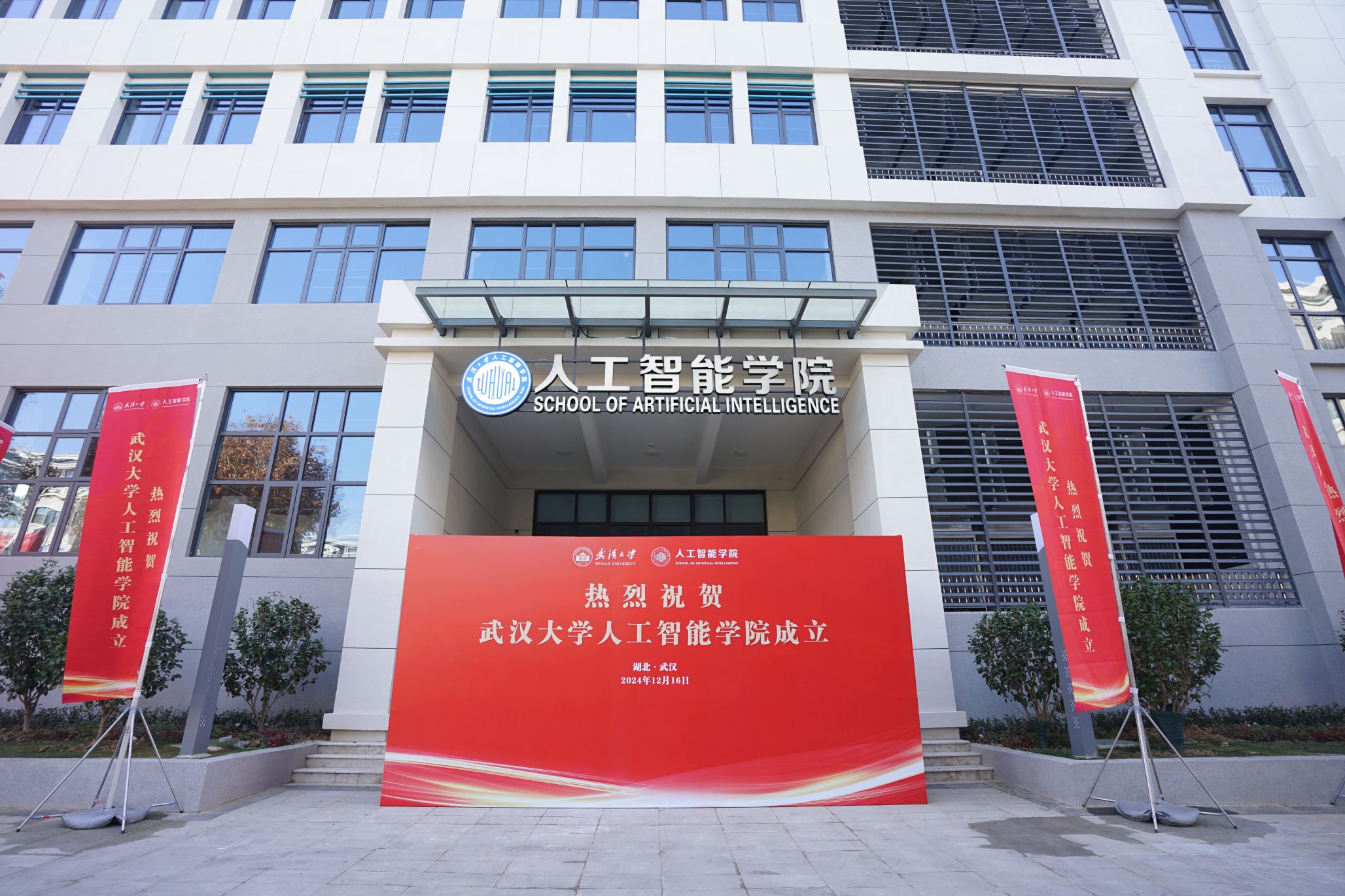Overview

The School of Artificial Intelligence was established in December 2024, with Professor Zhang Pingwen—academician of the Chinese Academy of Sciences and President of Wuhan University—serving as its inaugural dean. The school focuses on the international forefront of artificial intelligence science and technology as well as addressing the major strategic demands for the new generation of artificial intelligence development in China. Centered on the construction of Wuhan University’s digital and intelligent education system, the school deeply integrates the strengths and educational resources of related disciplines in intelligent science and technology. It is dedicated to the cultivation of talents and scientific research in the fundamental theories of artificial intelligence and its interdisciplinary applications, aiming to build a discipline system with significant international influence that leads the cutting edge of interdisciplinary AI research. In doing so, it seeks to establish a talent cultivation base, a technological innovation center, and a high-quality development empowerment platform in the field of artificial intelligence.
In terms of discipline construction and scientific research, the School of Artificial Intelligence leverages Wuhan University’s strengths in mathematics, computer science, information resource management, and surveying and remote sensing, with support from several national and provincial key research institutions, including Tianyuan Mathematical Center in Central China, National Engineering Research Center for Multimedia Software, State Key Laboratory of Information Engineering in Surveying, Mapping, and Remote Sensing, and Artificial Intelligence Institute of Wuhan University. The focus is on in-depth research in four key areas: mathematical foundations and data science, machine learning and intelligent science, intelligent natural sciences, and intelligent social sciences. With the goal of achieving high-quality development in both artificial intelligence and traditional disciplines, the school aims to promote interdisciplinary integration, facilitate the transformation and upgrading of traditional disciplines, and strive for significant breakthroughs in high-level scientific research in cutting-edge fields such as “AI + Science,” “AI + Engineering,” “AI + Medicine,” and “AI + Humanities and Social Sciences.”
In terms of faculty development, the School of Artificial Intelligence has established the Department of Artificial Intelligence Theory and the Department of Artificial Intelligence Applications, in addition to founding the Artificial Intelligence Research Institute and the Experimental Teaching Center. Currently, the school boasts a strong faculty team comprising a total of 38 full-time teachers and postdoctoral researchers, including 22 professors. Among these, there is one academician of the Chinese Academy of Sciences, two recipients of the National Science Fund for Distinguished Young Scholars, and six national-level young talents. The school will intensify efforts to attract and nurture top talents in the field of artificial intelligence, further enhancing the quality of its faculty team.
Regarding talent cultivation, from 2025 onwards, the School of Artificial Intelligence will enroll undergraduate students in the “Artificial Intelligence” program, academic master’s and doctoral students in the “Intelligent Science and Technology” discipline, and professional master’s and doctoral students in the “Electronic Information” discipline. The school will actively innovate new pathways for cultivating interdisciplinary talents in artificial intelligence, vigorously promote a new model for the independent development of top-tier talents in the field, and establish a sound mechanism for interdisciplinary talent cultivation. Based on the philosophy of “Strengthen Foundations, Advance Technology, Integrate Disciplines, Drive Innovation,” the school is committed to nurturing top-tier innovative talents who possess a deep sense of patriotism, a solid foundation in mathematics and science, and strong scientific thinking. These talents will systematically master the fundamental theories, methods, and technologies of artificial intelligence and be capable of engaging in research, development, and applications in areas such as intelligent perception, cognitive computing, intelligent systems, data science, as well as the expansion of artificial intelligence disciplines.
In the future, Wuhan University School of Artificial Intelligence will continue to make sustained efforts, continuously deepen educational and teaching reforms, actively undertake major national research tasks, strengthen fundamental research and tackle critical core technological challenges, and enhance both international and domestic exchanges and cooperation, while actively promoting the integrated development of production, education, research, and application. With the mission of cultivating more outstanding talents in artificial intelligence, the school will contribute Wuhan University’s strength to the vigorous development of China’s artificial intelligence sector, standing boldly at the forefront of the AI era and shining brilliantly.





